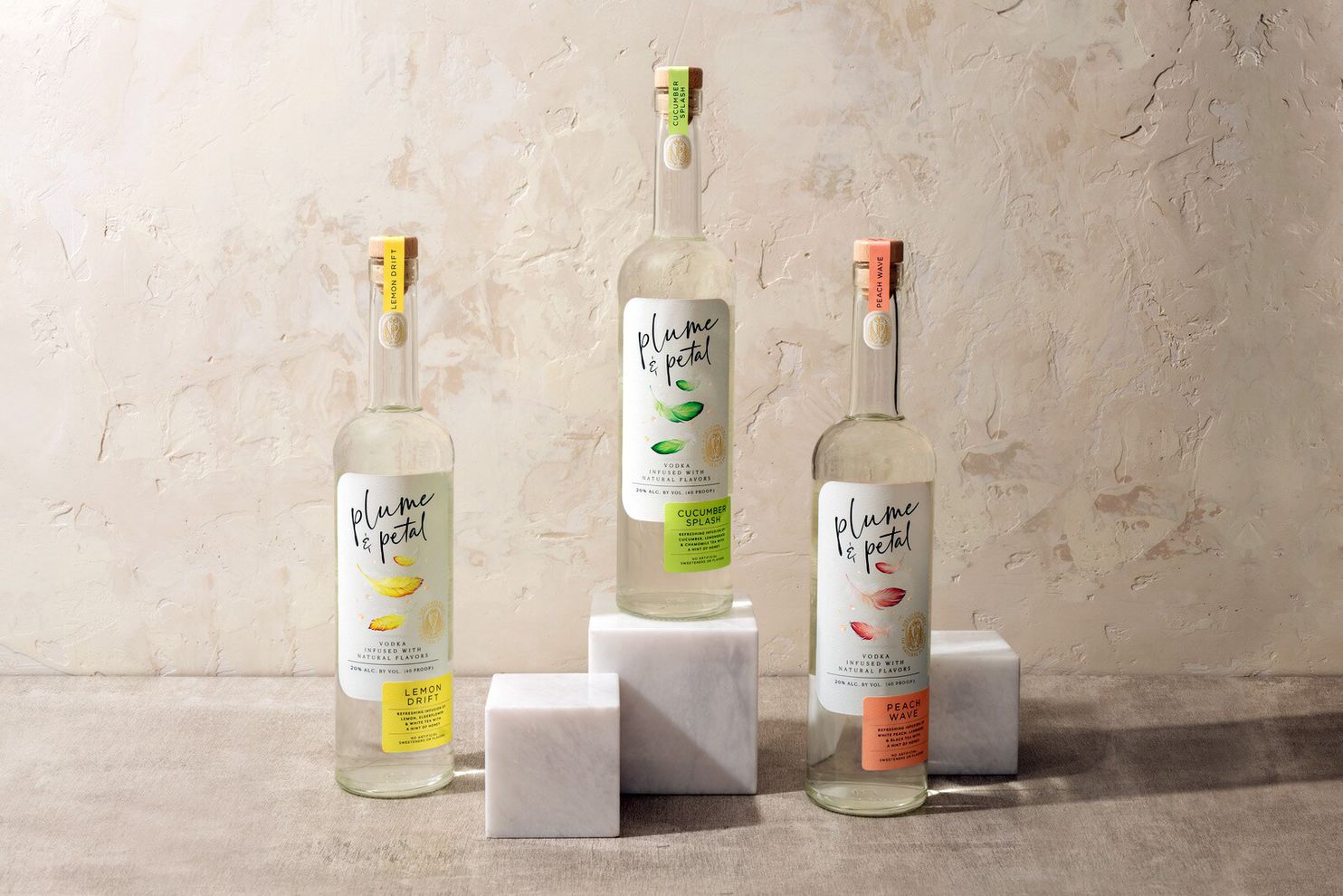Bacardi targeted women with its new reduced-alcohol vodkas. It went over as well as you’d expect.

It seems that everyone is pivoting these days.
That includes spirits giant Bacardi Limited, which is apparently walking back the branding behind a new line of reduced-calorie and reduced-alcohol vodkas that was initially exclusively aimed at women. A Bacardi spokeswoman wrote in an email Tuesday that the Plume & Petal products, which were soundly dragged on social media last week, are “not for women specifically.”
[A Goya boycott has people sharing alternatives for adobo, sazón and more pantry staples]
A millennial-pink flag went up last week when Food & Wine restaurant editor Khushbu Shah posted an image of a message she had received from a PR representative hoping to interest her in writing about the new collection, “by women, for today’s modern woman, intended to be enjoyed with other women.”
The solicitation from an outside PR firm suggested that the vodkas, which come in peach, cucumber and lemon flavors, were “light as a feather” and would be perfect served in a “Spa Day Spritz.”
The mockery came in as hot as a stone massage. Shah kicked it off, writing, “ah yes just what I need in 2020! gendered drinks with half the alcohol.”
“This ad copy is from a Crystal Light ad from 1995,” another critic wrote. Others wondered why women would want a lighter booze these stressful days. “This is a pandemic,” one wrote. “How dare you.”
[The key to White Claw’s surging popularity: Marketing to a post-gender world]
Bacardi soon weighed in, telling news site Metro.co.uk that the company regretted the phrasing. “We are aware of the conversations on social media around the use of gendered language in a pitch,” the spokesperson said. “We’re not proud of that, but we are proud of the female creators behind this product — unfortunately, a rarity in this industry — and we are proud of this great tasting drink.”
But it seems apparent that the original concept Of Plume & Petal as Vodka for Ladies went beyond a bit of errant PR messaging. A cached version of a page on the brand’s website — which is no longer online — bears the headline “Plume & Petal: A Spa-Inspired Spirit for the Modern Woman.” It repeats the language in the now-disavowed pitch, describing the products as being “designed for women, by women.”
screencapture-webcache-googleusercontent-search-2020-07-21-11_40_12
And even where the language isn’t overtly feminine, it’s clear that the target consumer for the 40-proof, 83-calorie pour is a woman, or at least the kind of woman who exists in the land of tampon and minivan commercials, forever sighing her way through carpool duty or warrior-posing on a yoga mat. “You know the moments,” the page reads. “A much-needed midweek meetup with friends; a summer gathering sandwiched between errands or a self-care Sunday with a delightful party of one.”
It’s unclear when that page was taken down. The archived version was from May 5.
Other vestiges of the initial strategy remain. The brand’s website and Instagram feed feature nothing but women relaxing poolside, clad in shades of white and blush. Even the logo and labels look like the covers of early-aughts chick-lit novels, with their loopy, handwritten font.
[Refreshing cocktails to carry us through a summer like no other]
What might a man think when looking at the product and its advertising? “ ‘That’s not for me,’ ” concludes Angeline Close Scheinbaum, an associate professor of marketing at Clemson University’s College of Business. “It’s almost like a built-in screener; they might not even process it.”
But now, the marketing seems to contain no overt declarations that this is a drink exclusively for women. The “Spa Day Spritz” is now just the “Plume & Petal Spritz” in the company’s marketing materials. And in an email, a Bacardi spokeswoman was clear. “While it is accurate to say that Plume & Petal was created by a team of women, it is not for women specifically,” she wrote. “We know all consumers enjoy a wider repertoire when it comes to drinks. ”
Susan Dobscha, a professor of marketing at Bentley University, says the brand missed the mark on multiple levels.
First, she notes, modern beverage companies don’t need to market by gender anymore — after all, White Claw hard seltzer became a market-dominating hit by eschewing the old stereotypes of bros guzzling brews and ladies sipping white wines. “You don’t have to rely on these sexist tropes to be successful in this product category,” she says. “Bacardi went the total opposite and decided to go full on girly. Where did they get that intel?”
The move seems to have put the products in league with widely mocked Bic “For Her” pens, Doritos lady-friendly chips, and Johnny Walker’s “Jane Walker” scotch logo.
[Archives: Doritos is developing lady-friendly chips because you should never hear a woman crunch]
And Dobscha says it’s harder than ever for brands to get things right. With a pandemic and social-justice movements on the rise, consumers — particularly younger ones — expect more of brands than before. “When you have a brand that has a really tepidly feminist message — like, really, is this made entirely by women in some kind of cute cottage? — this is going to be scrutinized more than it would have been a year ago,” she says.
More from Voraciously:
Amid accusations of discrimination, Bon Appétit staff vows to ‘dismantle racism’






